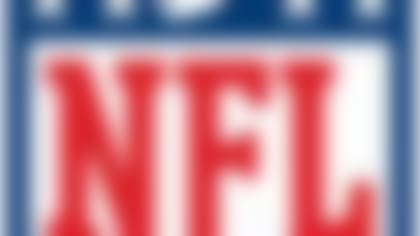The Philadelphia Eagles hold their daily news conferences outdoors, providing, when temperatures plummet, amusing shots of ski-capped reporters looking as if they are covering an event in the Ukraine while awaiting appearances from coaches and players whose puffs of breath are visible with each quote.
That Eagles oddity seems strangely relevant this week, perhaps a subtle indicator of the team's comfort level with discomfort as weather forecasts for Wild Card Weekend threaten to make Jim Cantore more important than Chip Kelly. The Eagles host the New Orleans Saints on Saturday night, and if you see Drew Brees and Sean Payton wearing ear muffs, it might not be because they're cold, but because they'd like to muffle the talk of just how poorly the Saints have played on the road this season.
It is a bitter irony that the Saints' road woes (they were 3-5 in away games) consigned them to playoff road trips, forcing them to try to reverse a troubling trend at the most critical time of the season. The Saints have never won a road playoff game (they were at home throughout their run to Super Bowl XLIV), and the regular-season indicators suggest they're a long shot to make a deep push away from New Orleans.
In the regular season, the Saints scored an average of 16 fewer points per game on the road than they did at home while allowing opponents to score six more points per away matchup. Their turnover differential of plus-six at home was flipped to minus-six on the road. They led at halftime of their home games 160-77 this season. On the road, they trailed at halftime 122-81. The Saints were, for all practical purposes, a mediocre team when not in the raucous confines of the Superdome.
Even worse was how the Saints performed in open-air contests, going 2-4 outdoors and 9-1 indoors -- a marked drop from the 6-1 outdoor mark they posted during their Super Bowl season. According to NFL Media's research department, under Payton, the Saints have a 2-5 regular-season record when the temperature is under 40 degrees and 0-1 in the postseason. The forecast for Saturday night? Below freezing.
Why do the Saints, a team mentally tough enough to build a powerhouse in the aftermath of a hurricane and to rebound from an unprecedented suspension of their head coach, struggle like this against something that all teams must contend with? One former Saints player, linebacker Scott Fujita, has a theory: The team's habit of often practicing indoors leaves it unprepared for even the slightest weather pattern.
Fujita, who spent four seasons with the Saints, noted that, while the Saints under Payton possess one of the league's best road records overall, they have long struggled with weather. He pointed to three straight losses to the Bears in Chicago. In the 2006 NFC Championship Game, the temperature was 28 degrees. In Week 17 of the 2007 season, the temperature was 30 degrees. In Week 15 of the 2008 season, it was again 28 degrees.
"Three years in a row, we lost at Chicago in winter when I think we were the better team," Fujita said. "I always felt like practicing indoors so much wasn't the best thing for us, because we only worked in perfect conditions. Then, on game days away, even the littlest bit of weather -- breeze, bright sun, moisture, snow -- created a variable you otherwise don't regularly deal with."
The Saints have sometimes practiced outdoors this season. They did so before their blowout loss in rain-soaked Seattle, for instance, and they did again this week. But they remain a team that often prefers the precision an indoor practice allows. They are certainly not alone in trying to control their surroundings as much as possible. When Peyton Manning played in Indianapolis, he preferred that the Lucas Oil Stadium roof be closed, to manage as many elements as possible. That, of course, has exposed Manning to the same kind of questionsabout his performance in bad weather that the Saints are facing now.
So why don't all coaches practice outdoors to get used to bad weather? There are drawbacks to that, too.
"I think it's a balancing act many coaches always grapple with," Fujita said. "Do you sacrifice efficient practice reps to get experience in the elements? I've had other coaches commit to practicing outside in horrible conditions, and practice wasn't worth a damn. Then you go into the game feeling unprepared. So I think striking the right balance is the challenge. In general, I've found that offensive-minded coaches prefer ideal practice conditions, so they'll take it indoors when necessary. Whereas many defensive minded coaches are more inclined to expose the players to the elements."
Billick: The playoff pressure cooker

How do NFL coaches prepare for sudden-death play? Super Bowl winner Brian Billick draws on his own experiences. **READ**
Former Eagles quarterback Ron Jaworski said in a radio interview this week that "there is a discernible difference" in how Brees throws indoors versus how he throws outdoors. Jaworski said because Brees lacks a big arm, his passes do not have the kind of tight spiral that would allow them to knife through wind. The wobbliness ever so slightly throws off the timing of the throws, causing Saints receivers to not catch them in perfect spots.
That might be so. But Brees, who played his college football in an outdoor stadium at Purdue in West Lafayette, Ind., has played well in cold weather. Despite the Saints' record when it's under 40 degrees, Brees' completion percentage in such conditions is 63.5; he also averages 329 yards per game, having thrown 15 touchdowns and eight interceptions while posting a respectable passer rating of 89.8.
Following his team's debacle in Seattle, Brees appeared impatient with the suggestion that the Saints are less formidable on the road. But days after a somnolent loss to the Rams in St. Louis -- and just before a gut-wrenching last-minute defeat to the Carolina Panthers in Charlotte, the game that effectively sent the Saints packing their luggage -- Payton finally admitted the obvious.
The questions about the Saints' performance on the road were valid, Payton said. He joked this week about switching jerseys and the color of the team's Gatorade to change their luck. And Brees said he's looking forward to seeing if new sweatsuits reverse their fortunes.
Eagles defensive coordinator Bill Davis brushed off the suggestion that domed teams struggle outdoors, saying the Eagles expect to get the best from one of the league's top offenses, no matter the weather. But when the Saints march into Philadelphia on Saturday night, the concerns that Payton agreed to deem valid might be much worse than that. They could be season ending.
"All joking aside, we are certainly not sitting here overreacting," Brees said this week. "At times, you know you do have to kind of change things up, so psychologically, you say it is going to be different this time around. I think our past history, if you look at our long-term history, it speaks for itself in regards to the road. Like I said, the last couple of outings have not been what we want, but we know we are about to break the seal. We have no other choice -- heck, it's the playoffs."
Playoff schedule

The first two rounds of the NFL's postseason schedule for the 2013 season were released Sunday night. **More ...**
Here are 10 more things to watch for in the quartet of games that comprise Wild Card Weekend:
1) Will we be watching the eventual Super Bowl champions play this weekend? The last two Super Bowl winners (the Ravens and Giants) were No. 4 seeds who had to play in the wild-card round. Just two of the past eight champions, in fact, had a first-round bye: the Saints in 2009 and the Steelers the year before.
2) How critical will defense be in the playoffs? Every team with a top-five offense or a top-five defense made the playoffs. Seven of the 12 playoff teams finished with a top-10 offense. But -- fitting for a season in which scoring records were set -- five of the playoffs teams finished in the bottom 10 defensively. The most balanced of the playoff teams? The Saints. They finished the season ranked fourth in both offense and defense. The most unbalanced? The Saints' opponents on Saturday night. The Eagles finished second in total offense and 29th in total defense.
3) Which versions of the Colts and Chiefs show up for their showdown? The Colts' defense finished the regular season ranked ninth in points allowed. But in the final three weeks, they allowed an average of just 6.7 points per game, the fewest in the league. The Chiefs, whose offense was often plodding early in the season, averaged 33 points per game -- third most in the NFL -- in the final six weeks of the regular season. And although Kansas City quarterback Alex Smith had just 10 giveaways the entire season, he had three in the Chiefs' Week 16 loss to the Colts.
4) Can the Chiefs reverse their fortunes against AFC playoff teams? They had better. Kansas City failed to win any of the five games it played against AFC playoff teams this season, including a 23-7 loss to the Colts (and two losses each to the Broncos and Chargers), while going 11-0 against the rest of the NFL. The Chiefs' performance was significantly worse in almost every major category against AFC playoff teams. They scored 22.8 points per game against the AFC playoff teams and 28.7 against the rest of the league; they allowed 30.6 points to the AFC playoff teams versus 13.8 to the rest of the league; and they had a minus-4 turnover differential against the AFC playoff teams versus a plus-22 differential against the rest of the NFL. One problem: The Chiefs were just 1-5 against teams that finished above .500 (they beat the Eagles 26-16 in Week 3).
5) How will Nick Foles hold up against the Saints' pass rush? The Saints collected 49 sacks and an additional 95 hits on quarterbacks this season for a combined total of 144 -- fifth in the league. But Foles was, statistically, the best quarterback against the blitz this year, scoring six touchdowns while giving up zero interceptions, averaging 10.73 yards per attempt and completing 64.6 percent of his passes.
Harrison: Wild-card Game Picks
Who will prevail on the road in the wild-card round -- and who will stand strong at home? Elliot Harrison makes his picks. **READ**
6) How many yards will LeSean McCoy gain against the Saints' defense? New Orleans had the league's fourth-best defense, but stopping the run was a weak spot: The Saints allowed 111.6 rushing yards per game, 19th in the NFL. McCoy, meanwhile, was the league's leading rusher with 1,607 yards. From Week 9 on, the Eagles led the league in rushing, posting an eye-popping average of 170.4 yards rushing per game. The Eagles also recorded four of the NFL's top six rushing games this season, rushing for at least 263 yards in those four games. The Saints have allowed at least 100 rushing yards seven times this season -- going 3-4 in those games -- and they allowed at least 90 yards in seven of their eight road games.
7) Can the Chargers beat the clock -- and the Bengals? West Coast teams participating in playoff matchups starting at 1 p.m. ET or earlier are 10-28 in NFL history. The Chargers, who are set to kick off against the Bengals in Cincinnati at 1:05 p.m. ET, are the only team with a winning record in such games (3-2).
8) Will this be Andy Dalton's coming out party? In his first two career playoffs games -- both on the road at Houston -- Dalton threw four interceptions and no touchdown passes, completing just 56.9 percent of his passes for an average of 192 yards. Dalton was very uneven this season, but he was much more efficient at home, where he had 20 touchdowns and nine interceptions compared with 13 touchdowns and 11 interceptions on the road. In the Bengals' 17-10 victory over the Chargers in Week 13, the Bengals accumulated 354 net yards -- making them the last offense to gain at least 350 yards against the Chargers' defense on the season.
9) Have the Packers figured out how to stop the run yet? Last season, Colin Kaepernick rushed for 181 yards in a divisional matchup against the Packers -- which is, thus far, the only 100-yard rushing game of his career. Much of the 49ers' success against the Packers in that game came on read-option plays, which San Francisco didn't use much of this season. Still, the Niners did have the league's third-ranked rushing offense, and they rushed 52.5 percent of the time, tops in the NFL. The Packers' rushing defense ranked 25th.
10) Will the Packers' balanced offense be able to move the ball against San Francisco? Even though they lost Aaron Rodgers for almost two months, the Packers finished the regular season ranked third in total offense. Taking into account just the games in which Rodgers was healthy, they would have ranked second in total offense and second in scoring. The Packers also had six individual 100-yard rushing games this season. Before this season began, they went 44 straight games without an individual 100-yard rushing game. The 49ers ranked fifth in total defense, but they regressed in the last two games, allowing an average of 442 yards.
Follow Judy Battista on Twitter @judybattista.












